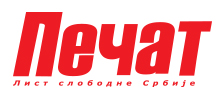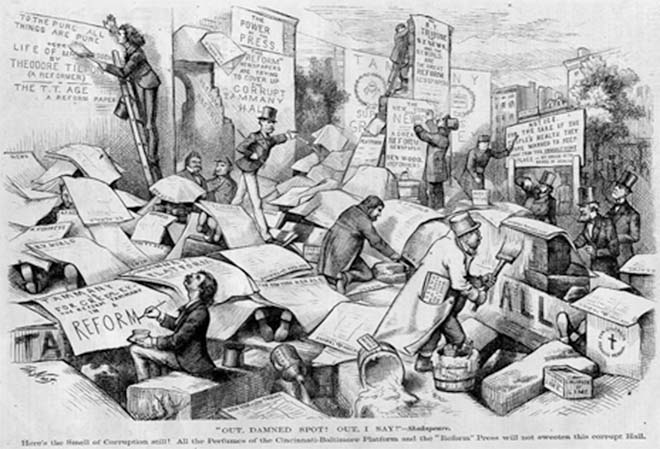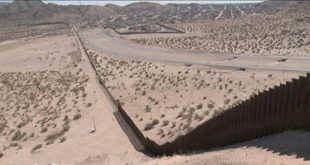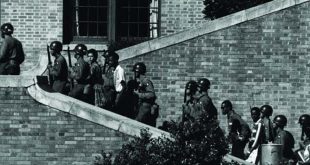Some claim that the cornerstone of democracy is a free press; others claim that integrity, not necessarily the truth, is its lifeblood; still others swear fake news is the cause of its demise with censorship a contributing factor. Whatever position you espouse be sure that you understand the dangers and pitfalls.
In revolutionary Russia and Communist USSR Izvestia and Pravda contributed to democracy’s demise; in Franco’s Spain it was La Vanguardia and ABC that championed the fascist cause; in post-World War II Yugoslavia Politika was the regime’s clarion call; in today’s Egypt government owned newspapers Al-Ahram, Al-Akhbar and Al-Guhriya espouse President el-Sisi’s party line ; and in a Turkey where democracy has taken a turn to dictatorship it is Hüriyet and Sabah that print President Recep Erdoğan’s cant.
Autocratic regimes and more benign forms of government, including democracies are all prone to nurture news media that speaks in a brighter shade of pale, from a complete disregard to a shading of the truth. Neither should be countenanced in today’s sophisticated and savvy internet world.
“Fake news”, once derided as propaganda, as outright lies, has become a daily topic of discourse in the United States with Donald Trump invoking that derogatory term at least 83 times in presidential tweets since his inauguration. “Fake news” has become a term of art, of common usage, but “fake news” is easily debunked as it is based on provable lies. Hard facts, physical evidence, the laws of physics – you can’t be in two places at the same time – are enough to refute them.
A claim by the Pentagon that the United States has no part in Syria’s ongoing civil war is spiked by photographs of 250 Special Forces soldiers leaving to “provide critical support to local forces on the ground” and the announcement of the end of a $1 billion covert Syria/CIA operation. Denials by the Kremlin of no involvement in the Crimea/Ukraine insurgency is belied by state funerals for fallen Russian “heroes”. If you want more examples pick up and read Legacy of Ashes, The History of the CIA for more than 50 years’ worth.
Lies are a blunt instrument, a bludgeon in a government’s arsenal in managing news. What is vastly more dangerous is censorship, some of its self-imposed. The censor uses a scalpel to surgically delete offending material from public view.
Censorship, an absence of truth, is much more difficult to disprove. No one disputed the mounting casualties of the wars in Iraq and Afghanistan. It was the absence of photos of flag draped coffins arriving at Dover Air Force Base in Delaware that kept this fact from public view. One photograph of a military policewoman dragging a prisoner on a dog leash hints at torture at Abu Ghraib, while thousands of more graphic images remain classified and under lock and key, the victims of the censors denying human abuses and war crimes.
Self-censorship in times of war and in furtherance of national defense may be proper. News of the Normandy invasion would have given Hitler advance warning to repel it. Disclosure that the Allies had broken the Enigma code would have spelled disaster for the Allies’ control of the North Atlantic.
But beware of government censorship in times of war. The Espionage Act of 1917 and the Sedition Act of 1918 saw more than 1,600 convictions for opposition to the war. The government created a Committee on Public Information that crafted a “voluntary censorship code” that fed news to over 6,000 papers daily. In 1941, we had the Office of Censorship that prohibited the “publishing information that, in the opinion of the government, would aid” the enemy. The dissemination of news during the ongoing Iraq War is equally flawed.
Calling a spade, a spade is an inconvenient truth. Television prohibited by government rules avoids the use of every day profanity, as does voluntarily the mainstream press, while cable’s airwaves are replete with it. That hypocrisy morphs into everyday life: a woman breast feeding in the Victoria and Albert Museum is told to cover up in full view of hundreds naked breasts on display.
Moral restraint at least seems to be on the wane, witness recent New York Times coverage of the Anthony Scaramucci New Yorker interview and his subsequent firing. Mr. Scaramucci, briefly the White House Communications Director, in an interview with a reporter used the following epithets: “fucking paranoid schizophrenic”, “fucking thing”. “cock-block these people”, “go fuck themselves”, “fucking kill” and “not trying to suck my own cock”.
“The Times published Mr. Scaramucci’s profanity … [because it] … decided that it was newsworthy that a top aide to President Trump used such language”. I agree buy I wonder how the European, Asian and Arab press covered this bit of news.
Upon reflection, the news should be served up raw and unabridged without regard to your genteel sensibilities. Sometimes, and only in the direst of circumstances should the media self-censor. To do less makes news media organizations, the press, television and the internet, self-censoring machines of the state … express[ing] ‘patriotic information’ only”.
P.S. The New York Times ran a story today, September 2, reporting that Turkey’s President Recep Erdoğan called the indictment of members of his security detail for beating the shit out of some opposition demonstrators “scandalous”. It “underscored … an increasingly strained relationship with the United States, a NATO ally”. The Times should restrict itself to reporting the indictments and let us decide whether Turkey is in fact an ally.
Deyan Ranko Brashich is a contributor writing from New York. He is the author of Letters from America, Contrary Views and Dispatches. His contact and blog “Contrary Views” is at www.deyanbrashich.com.
 Печат – Лист слободне Србије Политички недељник, актуелна политичка дешавања, друштво, свет, култура.
Печат – Лист слободне Србије Политички недељник, актуелна политичка дешавања, друштво, свет, култура.







